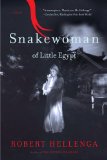Summary | Excerpt | Reading Guide | Reviews | Beyond the Book | Readalikes | Genres & Themes | Author Bio

A Novel
by Robert Hellenga
And there were always good-looking women. Wherever you went.
Even in the Hy-Vee. Amazing. So much beauty. Though not like
Paris, where the women dressed up even to go to the butcher. His
mother had dressed up. His father too. And Suzanne, the woman
he'd lived with for almost a year, had dressed up just to look out the
window, though she didn't always bother to put on a skirt or pants.
She was married now and lived in a big apartment in the ninth arrondissement, across the street from the house where Chopin lived
during his love aff air with Georges Sand, who had her own house on
the same street. Every year Suzanne sent a Christmas letter inviting
Jackson to spend the holidays with her and her family in their country
place in the Dordogne. And Jackson sent her a Christmas letter
inviting her and her family to spend the holidays with him in the
woods.
He changed the menu when he saw fresh mussels at the fish
counter at the back of the store. Remarkable changes had taken
place at the supermarket in the last few years. You could be surprised
by fresh mussels, or sea scallops, or wild shrimp, and sometimes
even wild salmon. Hoisin sauce was on the shelves, along
with Chinese soy sauce, next to the Kikkoman; balsamic vinegar;
six or seven kinds of olive oil... You could count on radicchio and
fennel and arugula in the produce section. He ate well.
He'd eaten well in the Ituri Forest too. His father had warned
him that he'd never make it as an anthropologist - because he
didn't like yams. And it was true, in a way. Oceania and large chunks of Asia and Africa would have been off-limits. Yams morning noon and night. He couldn't have faced it. The Mbuti ate yams, but theirs was not a yam culture. They lived on mushrooms and wild honey and plants that had no name in English, and roasted duiker, a kind of antelope, and vicious little mouse deer that lived on the river
banks. And termites, and sometimes boiled monkey. Occasionally
elephant.
When the guests arrived in Claire's new four-door BMW, the dog
ran up the ramp to greet them. The house was halfway down a slope.
The garage was at the top of the slope. At the bottom of the hill
Johnson Creek separated the house from the woods beyond. The
ramp was very romantic, but inconvenient. It would have been
better to have built the drive right down to the front of the house.
Jackson had nailed little pieces of wood on the ramp, which was
treacherous when it was icy and you were carrying bottles of wine
in paper sacks. The guests stepped on the little pieces of wood even
though it wasn't icy.
People spoke of Claude's cabin, but it was really a house - very
rustic, but very comfortable. There was a Lopi wood-burning stove
in the large living room, which took up most of the first floor and
was full of books, but there was a furnace too, and air-conditioning.
Claire gave Jackson a couple of air kisses and introduced him to
Pam. "You didn't call her, did you? I mean, just to hear the answering
machine?"
"The cry of the loons," Jackson said.
"Why don't you call now?"
"Why would I call her now?" Jackson asked. "She's right here."
Claire invited Pam to admire the kitchen, which Claude had designed
himself, turning it into a sort of French farm house kitchen,
with a large Lacanche stove set back into the wall, old blue and
white pottery on the shelves, and terracotta tiles on the floor. Copper
pots hung from the ceiling, some with tin linings, which Jackson
had retired, and some with stainless steel, which he used
regularly and which needed polishing.
Pam was wearing a summer dress with a low scooped neckline.
Claire was her usual classy self in a pastel sheath dress that would
have been suitable for entertaining at the rectory, which she and
her priest husband sometimes called the Vicarage - which was
beautiful in its own way, with leaded windows on the first two floors
and eyebrow windows in the attic. Father Ray, Claire's husband,
was in dependently wealthy. So was Claire. At least her parents
were.
Excerpted from Snakewoman of Little Egypt by Robert Hellenga. Copyright © 2010 by Robert Hellenga. Excerpted by permission of Bloomsbury. All rights reserved. No part of this excerpt may be reproduced or reprinted without permission in writing from the publisher.
Your guide toexceptional books
BookBrowse seeks out and recommends the best in contemporary fiction and nonfiction—books that not only engage and entertain but also deepen our understanding of ourselves and the world around us.